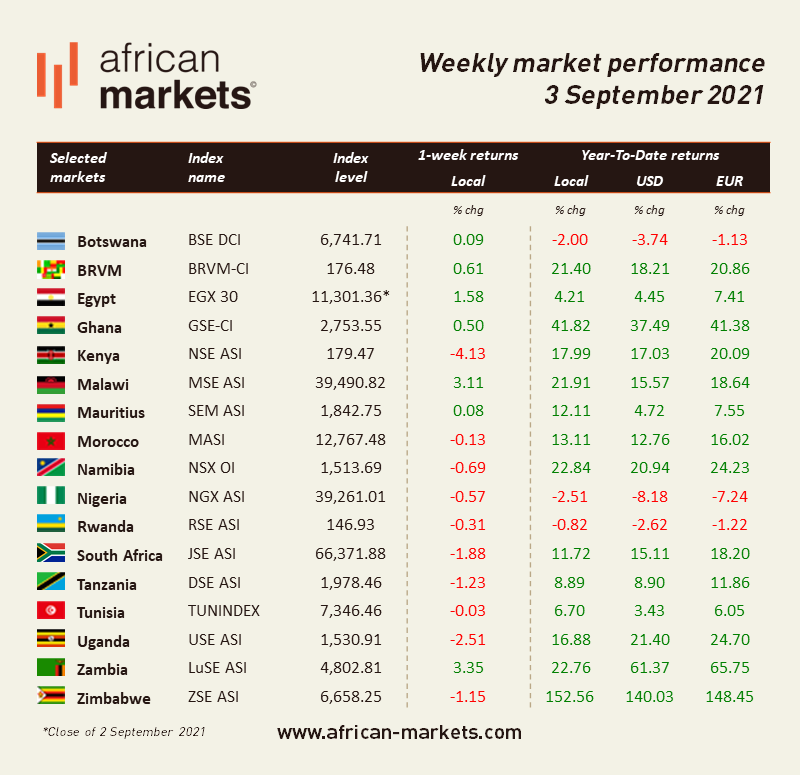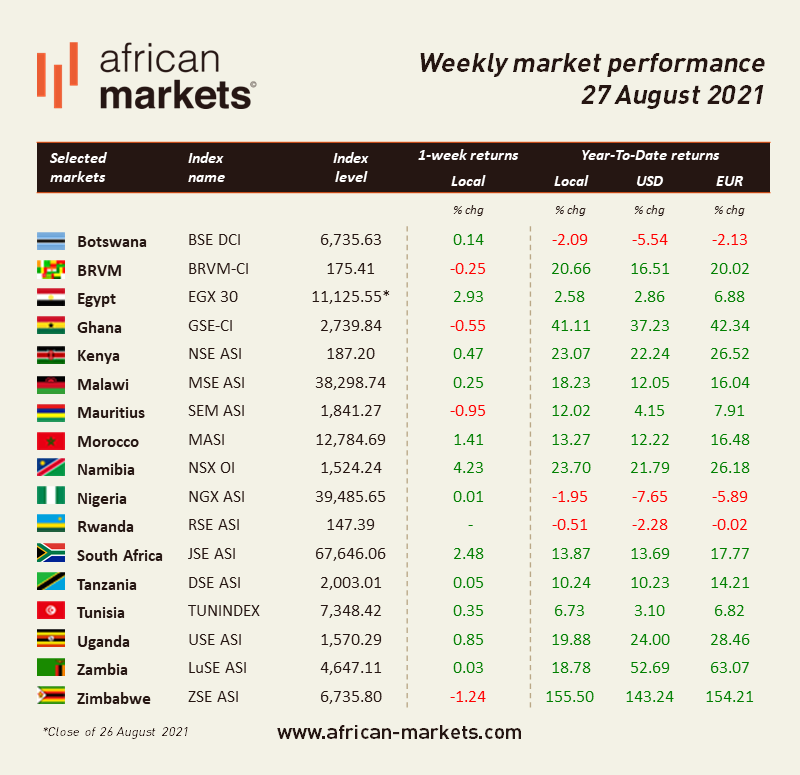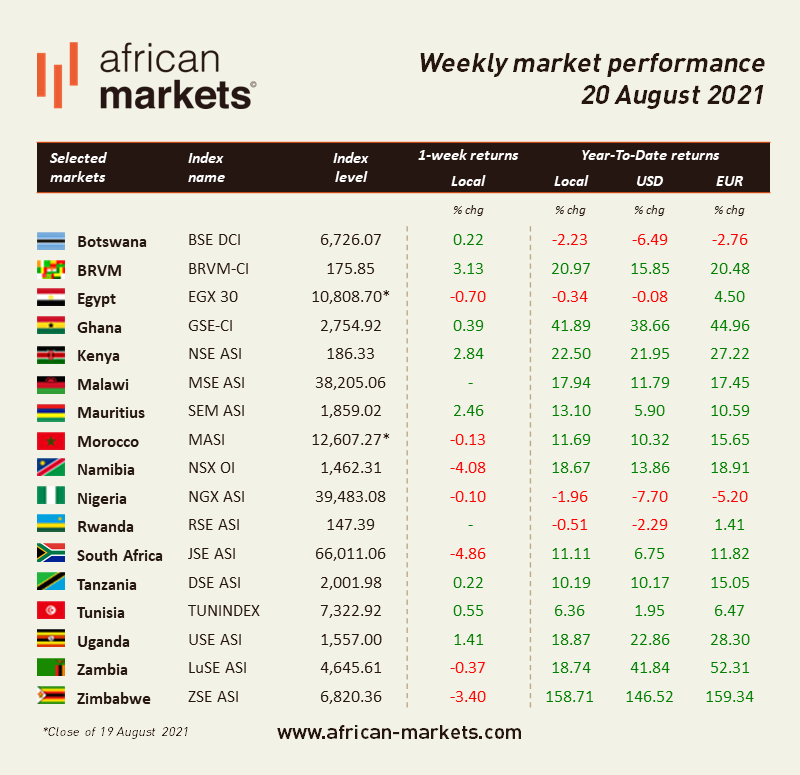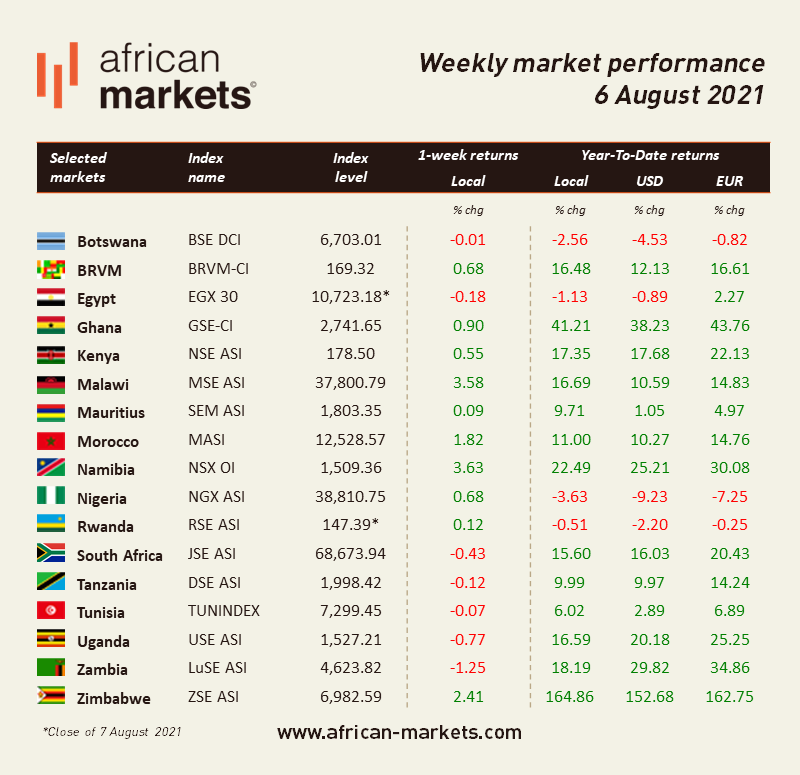A new week and a new trend on African markets… Performance was mixed starting the month as near half of the indices under our watch closed on negative territories.
After the government raised fuel and electricity prices, Egypt’s central bank raised its benchmark interest rates by 200 basis points for the second time this year in an effort to control inflation. The overnight deposit rate was raised to 18.75% and the lending rate was raised to 19.75%. The momentary rate increased was aimed at easing the effect of recent subsidy cuts and tax increases which, according, to the bank pushed inflation risks “more strongly to the upside”. The bank also stated that necessary measures will be taken to lower inflation to 13% by the end of next year. The government on Thursday increased household electricity prices by 42%, a week after it raised fuel prices. The EGX30 lost 0.19%.
In Tanzania, the World Bank approved a $345 million loan for the expansion of a port in Tanzania’s commercial capital Dar es Salaam, which the East African country aims to turn into a regional gateway. The idea of the project is to increase the capacity of the port of Dar es Salaam and to strengthen its economic role in the region. The DSE lost 2.94%.
In Kenya, Abraaj Group announced its plan to fully acquire Kenyan coffee chain Java House from its present owners for an undisclosed amount. Java House was created in 1999 and has 60 outlets in Kenya, Uganda and Rwanda and roasts coffee for sale to other buyers like supermarkets, hotels and restaurants. The NSE lost 0.44%.
The International Monetary Fund warned South Africa on Thursday its economy is extremely vulnerable to external shocks and funding shortfalls, although it stuck by its earlier growth forecast of 1% this year. Following a country visit, the fund issued an executive report where it fears that policy uncertainty linked to political turbulence would weigh on business and consumer confidence. Following last year’s slowing economic activity, the fund expects the economy to expand 1% in 2017 and 1.2% in 2018, still insufficient to keep pace with the rising population. The declining economy has also impacted public finances with an increase in government debt. Finance Minister Malusi Gigaba announced a 2.3 billion rand ($176 million) bailout of state-owned South African Airways, one of number of public firms heavily dependent on government guarantees amounting to nearly 500 billion rand, about a third of total state expenditure. The JSE gained 0.56%.






































